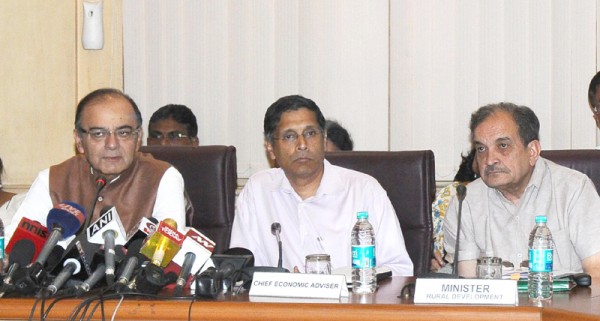
Five years on, mandated philanthropy not delivering in India
India is now into the fifth year of its unique experiment of legally binding companies to be socially responsible. This push by the government to solve the country’s most challenging social problems was based on the idea that the corporate sector will come up with transformative solutions that will scale up impact across the country. As the development goals of the country are immense and everyone recognises that the challenges can only be overcome with the effort of every stakeholder in the ecosystem, many scholars viewed it as the right move by the government.
The CSR (Corporate Social Responsibility) sector has matured over the years, but no significant impact has been made in the development issues that India faces. There are many challenges that need to be addressed before CSR becomes a powerful force for change.
Ministry of Corporate Affairs data reveals that out of 5,097 companies that filed annual reports until December 31, 2016, for the financial year 2015-16, only 3,118 had done some CSR expenditure. For the financial year 2014-15, 3,139 companies had spent 74 per cent of the prescribed CSR expenditure. Many of the companies made their CSR investments to the Prime Minister’s Relief Fund. The reasons stated by the companies for zero spendings include non-finalisation of location of the project, technical difficulties and organisational capacity to identify projects still in creation. Some of the companies even cited that their profile does not gel with the concept of CSR and they are not required to constitute a CSR committee.
These findings provide two major insights about Indian businesses. First, while many of them are making efforts to address societal challenges, they lack strategic planning to identify the ideal projects for investment. The grants made by most of the companies have no long-term strategic thinking behind it. Second, most of the businesses still do not consider it their responsibility to invest in the advancement of communities around them. They fail to consider CSR as a holistic view of the impact that businesses have on society and the environment through their operations. Even if these companies make some investments in future, their behaviour suggests that there will be a lack of engagement.
The lack of strategic planning, innovation and experimentation and the lack of engagement by businesses will not lead to high-impact results. It is important for businesses to understand the challenges faced by the citizens to make a meaningful impact.
One way is to enable businesses to see new opportunities to solve public problems. They should get hold of a social issue that is at the core of their business and then use their resources and capabilities to address the problem in a way that will help not only society but will reap benefits for the company as well. This implies that they should focus on creating “shared value”. The other route to tackle the social challenges that India is facing is that businesses start embracing strategic CSR and adopt strategies that will help move the needle towards urgent needs.
Both these solutions require an in-depth analysis of the well-being of our country — analysis that can bring out state-specific social challenges and areas of relative weaknesses. Such a tool can act as a useful guide for companies as to where and how they can best effect change by helping them identifying key focus areas for prioritisation and investments. Social progress is a concept that can enable businesses to harness their full potential to enhance well-being in society.
Social progress views development beyond the concept of GDP. It focuses on capturing the real issues faced by the people. This is already helping businesses to improve people’s lives in many other countries. In Brazil’s Amazon, a detailed social and environmental diagnosis of 772 municipalities spurred Coca-Cola and Natura to conduct a community-needs survey based on the Index framework. This laid the foundation for a new development programme that was a collaboration between citizens, government, business, and civil society.
The programme, guided by the social progress data, has improved water and sanitation infrastructure, providing 500 households with consistent sources of clean water for the first time. They also constructed new river piers to improve transportation during seasonal flooding and increase connectivity with neighboring communities. These improvements have been made possible because businesses in that region took responsibility for the well-being of society.
Similarly, businesses in India can use the tool for their CSR action plans to determine areas in which they can allocate resources and improve the quality of life across communities. For instance, when it comes to nutrition and basic medical care, the Index shows that Madhya Pradesh performs the worst among all states. Uttar Pradesh and Jharkhand follow closely. Therefore, FMCG companies can undertake targeted initiatives across this belt to tackle the perpetual problem of nutrition in India and companies in the pharmaceutical and medical sector can help improve the condition of basic medical services in these states.
There exists immense scope for corporates to aid social progress in India and it does not even have to be forced down their throats. Merely making use of indices like the Social Progress Index to identify areas of social need that intersect with their line of business and contributing their two cents should suffice. It just might also make for a unique business opportunity for them. One only needs to look.
(Amit Kapoor is chair, Institute for Competitiveness. The views expressed are personal. He can be contacted at Amit.Kapoor@competitiveness.in and tweets @kautiliya. Manisha Kapoor, senior researcher, Institute for Competitiveness, has contributed to the article.)
—IANS


